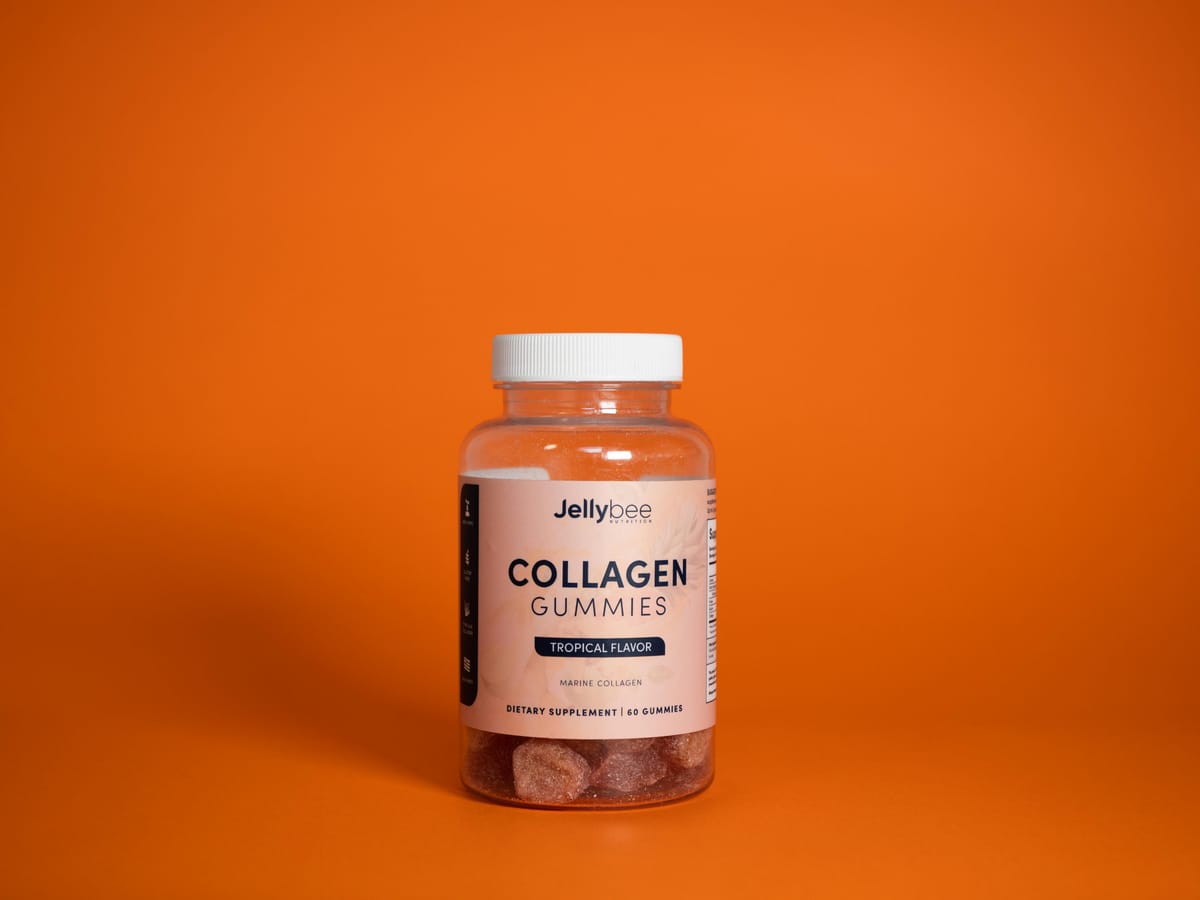Are Collagen Supplements Really Doing Anything?
Did you fall for the TikTok hype too? Collagen powders stirred into matcha, promises of glowing skin and no more joint pain. Collagen supplements have overtaken healthtok, but is the hefty pricetag worth it? Keep on reading to find out.

Summer’s coming. Your skin’s in the mirror. And those collagen gummies on your feed look… tempting. But before you drop another $40 on a pink jar that promises plump skin and silky hair, let’s explore what collagen supplements actually do and what’s just good marketing.
What Are Collagen Supplements, Anyway?
Collagen is the body’s structural MVP. It keeps your skin bouncy, joints cushioned, and bones strong. But as you age, collagen production slows down. This is why fine lines, joint pain, and a little stiffness tend to show up around the same time.
Enter collagen supplements. Most come in the form of hydrolysed peptides (aka pre-broken-down collagen), promising to top off your body’s supply and reverse the clock. Sounds great! But does it work?
What The Research Says
Skin Health
Good news first: Some studies do show that collagen supplements can improve skin hydration and elasticity.
One 2023 meta-analysis even found significant improvement in wrinkle depth and skin smoothness compared to placebo.
But there’s a catch! Most of these studies are small, short-term, or funded by companies selling the supplements.
And most products include extra ingredients like vitamins and antioxidants, so it’s hard to tell if collagen’s working or if it’s just the vitamin C.
Joints and Bones
Collagen might help with achy knees or stiff hips. Research shows potential benefits for reducing joint pain and improving mobility.
Collagen can especially help people with osteoarthritis or athletes putting their bodies through the wringer.
Collagen makes up a big chunk of your cartilage, so topping up might help your joints bounce back. Just don’t expect it to replace physical therapy or solve chronic issues overnight.
The Other Claims Behind the Hype
When it comes to hair growth, longer nails, or a "healed gut," the evidence is thin.
Most studies focus on skin and joint health and leave the rest of collagen’s supposed superpowers hanging on influencer testimonials and brand-funded blogs.
What The Experts Say
Most dermatologists agree: collagen might help a little, but it’s no miracle. And there are simpler (and cheaper) ways to protect your natural collagen:
- Use sunscreen daily
- Don’t smoke
- Limit alcohol
- Eat a varied diet with protein, healthy fats, and antioxidants
For collagen-friendly choices, try bone broth, chicken skin, fish, eggs, nuts, and seeds.
Final Thoughts
Collagen supplements aren’t totally useless. You might notice a bit more skin hydration or less creaky knees, but don’t expect a dramatic transformation.
For a real glow-up, focus on whole foods, sleep, sunscreen, and hydration.
Supplements play a supporting role. But they’re not the star of the show.